
Despite its not-so-palatable history, I love America; the land of the free and the home of the brave …
Gilbert S.C. Keith-Agaran
Growing up in Pa‘ia, I attended Doris Todd Memorial Christian Day School now known as Doris Todd Christian Academy. I loved the music program and I enjoyed singing about and celebrating our country. Doris Todd, as a school and through its affiliated church community, made it a point to teach students about American patriotism.
While we learned and sang all the songs you would expect, perhaps my favorite tune was written by Baptist seminarian Samuel Francis Smith:
My country, ’tis of thee,
Sweet land of liberty,
Of thee I sing;
Land where my fathers died,
Land of the pilgrims’ pride,
From ev’ry mountainside
Let freedom ring!
My native country, thee,
Land of the noble free,
Thy name I love;
I love thy rocks and rills,
Thy woods and templed hills.
My heart with rapture thrills
Like that above.
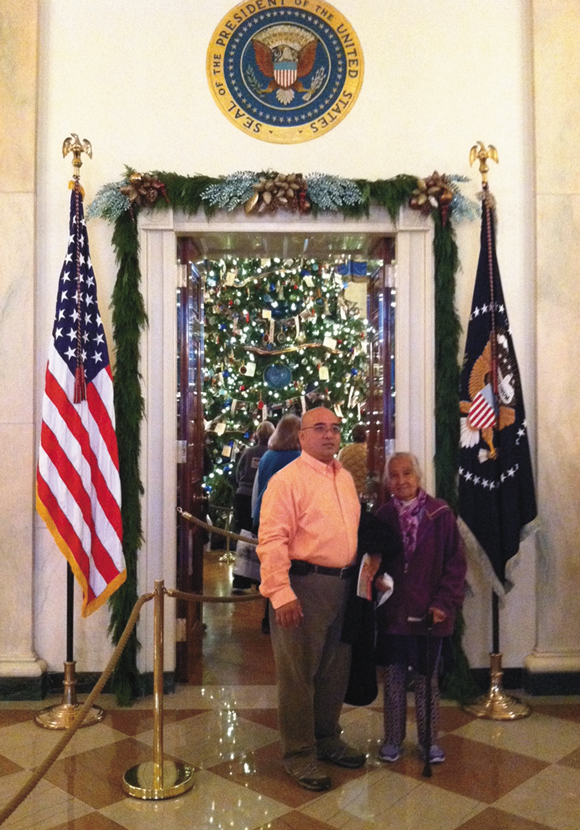
Photo courtesy Gil Keith-Agaran
I can’t remember when I realized Smith, intentionally or not, used the same tune as the British song honoring its monarch, “God Save the King” (more familiarly known to us during the second Elizabethan era as “God Save the Queen”). Nor did I dwell on the irony that a Filipino kid born and living in Hawai‘i would belt out “Land where my fathers died” when my Sakada grandfather and father hailed from the Philippines (arguably my grandfather arrived in 1928 as an American National but like my father and mother would need to be naturalized as a citizen in the 1960s).
But as someone born in the State of Hawai‘i, I know the United States of America was my native country as much as Barack Obama’s.
As I’ve grown older, I’ve been surprised in learning some of the undercurrents of the various songs we view as patriotic songs. Martin Luther King, Jr. famously riffed nine times on that song’s image of “Let freedom ring” to end his “I Have A Dream” speech, perhaps conscious that the song’s celebration of a free people didn’t apply equally to everyone:
And I say to you today my friends, let freedom ring. From the prodigious hilltops of New Hampshire, let freedom ring. From the mighty mountains of New York, let freedom ring. “From the mighty Alleghenies of Pennsylvania!
Let freedom ring from the snow capped Rockies of Colorado!
Let freedom ring from the curvaceous slopes of California!
But not only there; let freedom ring from the Stone Mountain of Georgia!
Let freedom ring from Lookout Mountain in Tennessee!
Let freedom ring from every hill and molehill in Mississippi. From every mountainside, let freedom ring.
And when this happens, when we allow freedom to ring, when we let it ring from every village and hamlet, from every state and every city, we will be able to speed up that day when all of God’s children, black men and white men, Jews and Gentiles, Protestants and Catholics, will be able to join hands and sing in the words of the old Negro spiritual, ‘Free at last! Free at last! Thank God almighty, we’re free at last!’
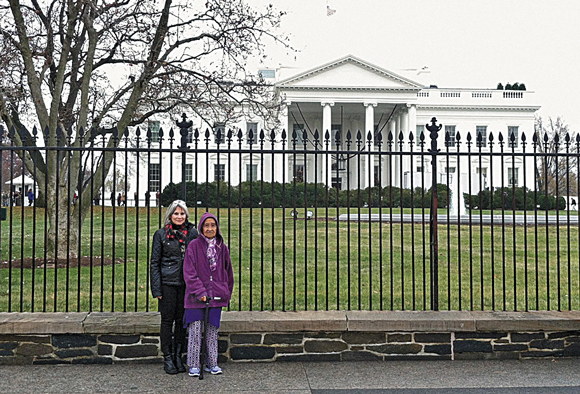
Photo courtesy Gil Keith-Agaran
Perhaps King was well aware of abolitionist A.G. Duncan’s 1843 anti-slavery version:
My country, ’tis of thee,
Stronghold of slavery, of thee I sing;
Land where my fathers died,
Where men man’s rights deride,
From every mountainside thy deeds shall ring.
Of course, we also learned to enjoy Katharine Lee Bates’s poem which Samuel A. Ward put to music:
O beautiful for spacious skies,
For amber waves of grain,
For purple mountain majesties
Above the fruited plain!
America! America!
God shed His grace on thee
And crown thy good with brotherhood
From sea to shining sea!
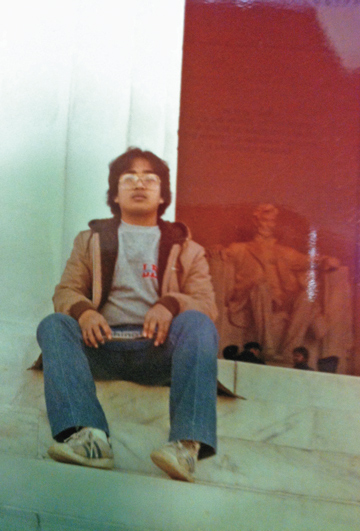
Photo courtesy Gil Keith-Agaran
Treated as an informal national anthem for nearly a century (“The Star-Spangled Banner” adopted formally in the 1930s), the song both captured the American myth of manifest destiny across the continent but also recognized a nation falling short of its stated ideals:
O beautiful for pilgrim feet,
Whose stern, impassioned stress
A thoroughfare for freedom beat
Across the wilderness!
America! America!
God mend thine every flaw,
Confirm thy soul in self-control,
Thy liberty in law!
Surprisingly, perhaps, Jewish immigrant Irving Berlin’s God Bless America gets viewed with mixed emotions. Written initially in 1918 and considered too somber by the writer for use in a comic vaudeville revue, Berlin reworked it as a peace song on Armistice Day as the world hurtled towards war in 1938. But given the era when it gained prominence (Kate Smith’s version was repeatedly played on the radio), some considered the song too nationalistic and chauvinistic.
Most of us growing up also learned Woody Guthrie’s response to God Bless America:
This land is your land and this land is my land
From California to the New York island
From the redwood forest to the Gulf Stream waters
This land was made for you and me.
As I went walking that ribbon of highway
I saw above me that endless skyway
I saw below me that golden valley
This land was made for you and me.
An early version of Guthrie’s song included:
There was a big high wall there that tried to stop me.
The sign was painted, said ‘Private Property.’
But on the backside, it didn’t say nothing.
This land was made for you and me.
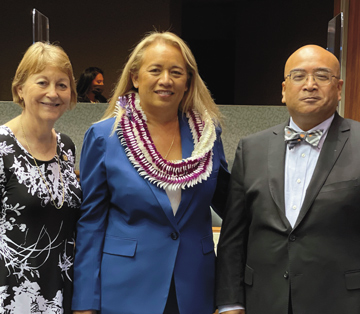
Photo courtesy Gil Keith-Agaran
Regardless, the populist song that we have come to know appealed to American progressives.
As you read this column, please note these musings would be labeled as Critical Race Theory in certain circles. But my love and pride in being an American is not diminished by recognizing the historical struggle we’ve had in living up to its promise. Growing up in Hawai‘i, with America’s history in these islands and with its native people, I’m conscious of the importance of knowing uncomfortable facts. History in our islands simply doesn’t begin and end with the 442nd/100th, the “Democratic Revolution of 1954”, the ILWU organizing plantation labor or Statehood. And part of being American, being patriotic, is dealing with our original sins.
In the end, the ideals of America remains. Freedom. Liberty. Equality. Democracy. Prog-ress. Unity and individualism.
So perhaps as we mark Independence Day in this post-pandemic summer, that old Irving Berlin song, jingoistic perhaps, still resonates:
God bless America, land that I love
Stand beside her and guide her
Through the night with the light from above.
From the mountains to the prairies
To the oceans white with foam
God bless America, my home sweet home.
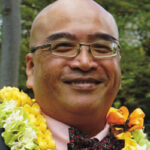 Gilbert S.C. Keith-Agaran represents Central Maui in the Hawai‘i state legislature.
Gilbert S.C. Keith-Agaran represents Central Maui in the Hawai‘i state legislature.
